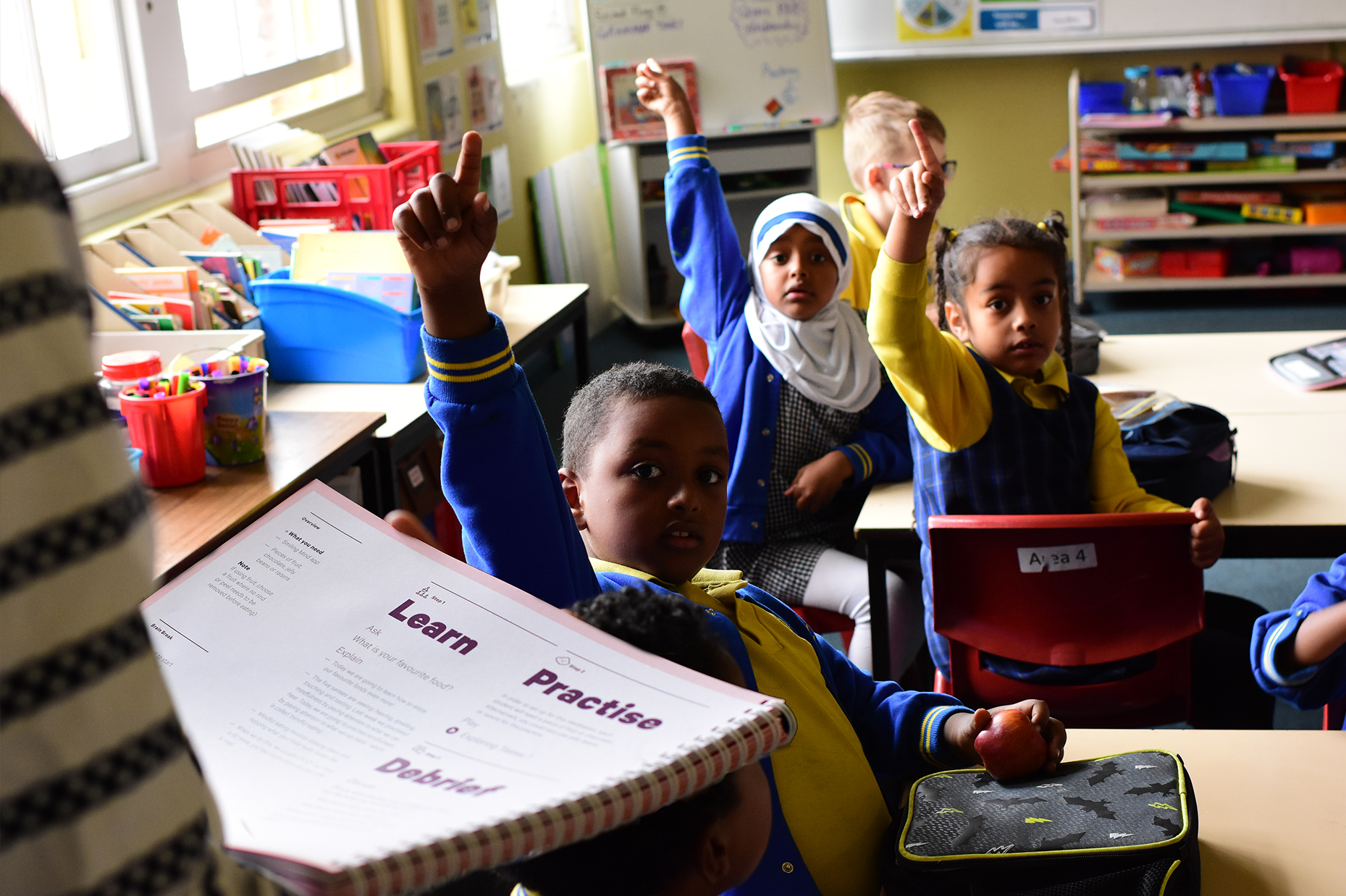The classroom where students learn (and play) is crucial in shaping their physical, mental and social health.
The facts are that 1 in 7 primary aged children and 1 in 4 secondary aged children are experiencing mental health problems.
Society is experiencing major and rapid changes and this is having an impact on the wellbeing of students.
The use of technology, smartphones and social media by children is affecting the abiltiy for mindful learning and there's more testing and pressure for students to perform.
Creating a mindful learning space in your classroom and school is a big step forward for the wellbeing of the children, but doing it right can go a long way to ensuring mindfulness is embedded into the fabric of learning at schools.
We spoke to teachers in our community to find out in what ways they are helping promote mindful learning.
Here’s 4 ways teacher’s encourage mindful learning in schools:
1. Ask students to help create a mindful learning space.
As a way to set up your mindfulness practice for the term it’s great to get the students involved in creating a mindful learning space for themselves.
Open the floodgates, get their feedback and see what ideas they come up with! Maybe it’s bringing in cushions, blankets or making giant posters that say ‘Gratitude’ or ‘Kindness’ on them, or building a gratitude tree out of sticks that they’ve collected from the playground.
2. Use visual stimuli and mindful learning 'triggers'.
In the classroom, give students constant reminders on what mindfulness is and how it works.
Smiling Mind has posters that you can download and display in your classroom to promote a mindful space. Just contact us and we’ll send these through.
Display other objects that your students choose, such as plants, beanbags or wind chimes which can all act as triggers to promote mindfulness.
3. Create a quiet corner or area.
Give students a space where they can go to relax and calm down. This can be a general space where they can participate in mindfulness meditation or a simply a space where they can sit and read.
Fill the space with things to promote mindfulness such as posters on the walls, cushions and throws for students to sit on or incense and candles for students to smell.
Treat your mindful learning area as a space for both calm and learning.
4. Have a meditation space outside.
![]()
Research has shown that being out in nature and green spaces helps improve student’s learning and feelings of fatigue.
With this in mind, designate a space outside or commit to a regular meditation outside with students so students can relax and connect with nature.
It’s best to decide as a class as a good meditation spot outside that the class can use, this can be a tree or a nice patch of grass which can help students connect with nature.
Or if this isn’t possible try and have some plants in your classroom as this has also been seen to be effective.
Smiling Mind makes mindfulness in schools easy to implement.
“Our school has embraced mindfulness using the Smiling Mind app and we have noticed a great difference in the children. Parents are also using it at home. In term 4, one of our teachers will be conducting mindfulness sessions in the morning for parents and students before school starts”
— Teacher, Camberwell Primary School
A whole school community approach to embedding mindfulness
The Smiling Mind Education Program is an established and well-regarded pre-emptive mental health and wellbeing program delivering mindfulness based education programs for primary and secondary school students.
Everything we do here at Smiling Mind is backed by evidence, which is why we’ve just released our Evidence Based Guidelines For Mindfulness in Schools. This document aims to provide school leaders, teachers and other stakeholders who wish to implement mindful learning through mindfulness programs into their school learning environment with a clear and concise review of the evidence and existing best practice within education.
If you want to book a workshop, find out more information or simply share your story please contact us here or read more on mindfulness in schools here.
Smiling Mind's vision is to help every mind thrive. We do so by providing accessible, life-long tools to support healthy minds through our FREE mindfulness app. The Smiling Mind app is a completely free mindfulness tool that you can use on your smartphone - anytime, anywhere.








.jpg)




